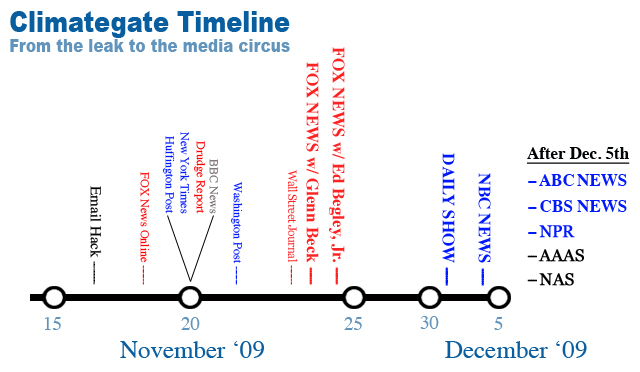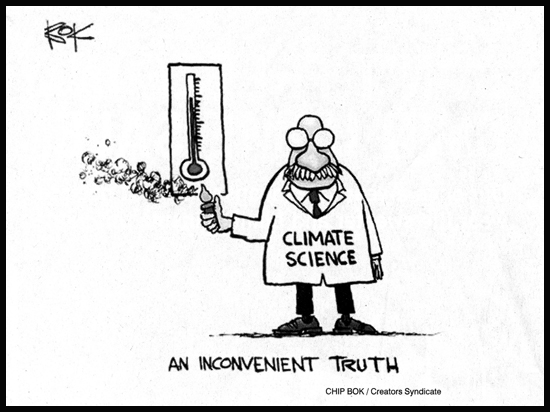#15) SPEED: What the world of science communication needs
February 22nd, 2010
In 2006 Newsweek published an article about the frustrations the U.S. military was encountering in Iraq with a decades-old tradition — the “Tuesday Press Briefing.” Since the Vietnam War, the release of information by the military to the press would take place mostly at the once-a-week press conference, but it was a concept that had evolved in a world without the internet, Youtube, social networks, and now even Twitter. The problem with the Iraq war was that things had changed. By the time the general stood up to the podium to tell the press what’s up each Tuesday, pretty much everything he had to say had already been blogged and Youtubed about and thus was old news. The media environment had changed, the military needed to adapt to the new environment. The same is true for the world of science. It’s what I was saying in my movie, “Flock of Dodos” — that the media environment has changed, but the science world is dangerously slow to respond. Now I’m saying it even more loudly with the train wreck that has been Climategate.
Take a look at this timeline of events around Climategate that Ryan Mitchell and I have compiled from the internet to the best of our ability.

Media coverage of the "Climategate" story by various outlets.
This figure shows several things. First, you can see how quickly the spinning up from the right wing media took place (Television news is in capitals). Second, you can see that Andy Revkin of the NY Times (who in my opinion is the closest thing to a neutral party in the climate wars) was on top of the story immediately. Third, you see that the major television network news organizations for some strange reason held off saying much of anything for over a week (Why is this? Perhaps Marc Morano will have some thoughts next week when I interview him). And lastly, where was the official voice of “the science world” in trying to attempt any sort of “damage control” or even guidance with this incident?
Actually, what exactly is “the voice” of the science world? You’d like to think it might be the NATIONAL Academy of Science, or perhaps the American Association for the Advancement of Science. If it is, then the pattern is clear — they said nothing officially about Climategate for at least a few weeks after the story emerged. Isn’t that kind of like if a story surfaced that Toyota engineers did something unethical and Toyota said nothing for weeks?
British journalist Fred Pearce did a nice job of summarizing the the whole mess with an article titled, “Climategate: Anatomy of a Public Relations Disaster.”
Throughout my science career I wondered about the leadership of the science world. Who’s in charge? When the profession finally falls victim to a full frontal attack by forces who manage to equate science with dishonesty, who’s in charge of trying to clean up the mess? Just look at this cartoon. It was sent to me by several people. I don’t even know where it’s from.

Is this the image you want for your profession? Is there really nothing that can be done to counter this public image?
Near the end of “Flock of Dodos,” my sound man, Ed Leydecker, ended up asking the final question at the poker game. He stood above the eight evolutionary biology Ph.D.’s and asked them what they were planning to do to defend their profession from the attacks underway against evolutionary biology. The responses were all very academic and indirect, talking about why the problem has arisen rather than how to address it.
My feeling is that the real problems now revolve around SPEED. The science world simply is not set up to respond quickly to large scale communications challenges. In an earlier essay I proposed the idea of a “Communications SWAT Team” — meaning a group of trained professionals who are experienced at dealing with conflict-oriented media dynamics and ready to spring into action on short notice. This doesn’t mean your local university outreach folks. They are important people and play a vital role, but they are not trained in how to deal with an anti-science campaign being fueled by Fox News, the Wall Street Journal, The Drudge Report and the rest of the right wing media and their funding sources.
There’s also an overall problem of channeling funds, not just to information control, but also to media directed at documenting breaking issues. When I decided to make “Flock of Dodos,” in the early summer of 2005, the one thing I knew was that there was no point in turning to the world of science for financial assistance. The problem I wanted to address — the “controversy” around evolution and intelligent design — was aflame, but it was clear the current fire wouldn’t last long. That was in June of 2005. The Dover court decision (that would stamp out the flames for at least a while) was only six months away. Had I called the major science organizations that fund science communication, I would have been told, “Okay, write up a proposal, submit it for our next deadline, we’ll send it out to peer review, and six months later we’ll let you know if you get any funds.”
How are you supposed to create media to address current time-sensitive issues with that sort of a funding situation?
The thing I have said in my talks for the past three years is that had I wanted to make a pro-intelligent design movie, it would have been easy. I could have gone to the Discovery Institute in Seattle, pitched them my idea, they could have gone to the conservative foundations who were aggressively funding them, and I wouldn’t have been surprised if the funding had materialized. The right wing has shown this ability to be more willing to take chances and move quickly. It’s well documented by everyone from Lewis Lapham to George Lakoff.
Last week Mike Mann talked about “David and Goliath” in assessing the funding situation for the issue of global warming. I think the overall conflict is more like the British army and the Revolutionaries in colonial America. I remember in elementary school reading about how the British troops were so regimented in their training that they would march into battle in formation in their bright red coats, following the traditions of European war. But the revolutionary soldiers wore no uniforms and hid in the forests, able to pick them off as they marched by in straight lines.

A group of academic scientists prepares to do battle with the anti-science forces.
I think these conflicts between scientists and anti-scientists have the same dynamic. For both evolution and global warming, the scientists keep marching into “debates” with the anti-scientists and getting shredded, just like the old British soldiers. And then stumbling away saying, “Well, that’s just not cricket.”
Next week we’ll be diving deeper into this with my interview of Marc Morano, who runs the climate skeptic website www.climatedepot.com. I’m afraid the days of the gentleman scientist are long gone.